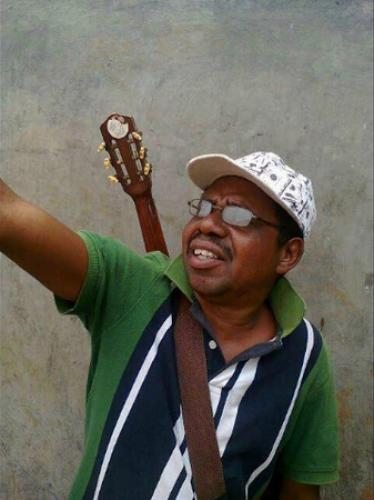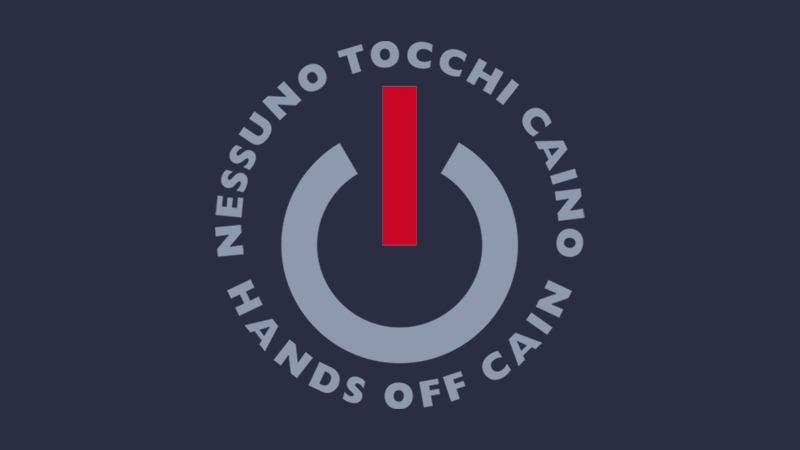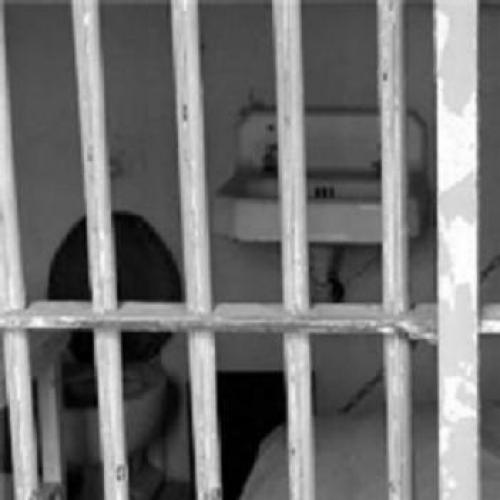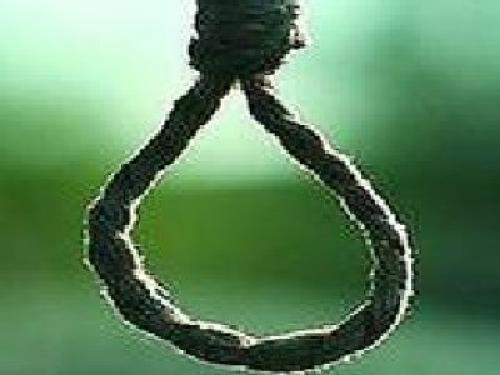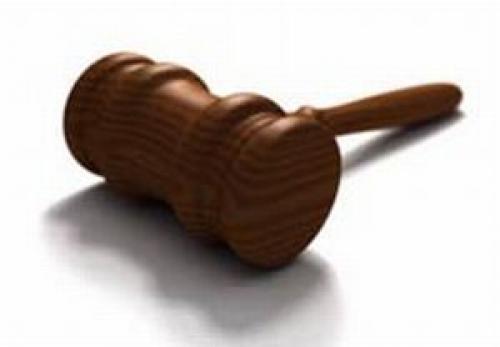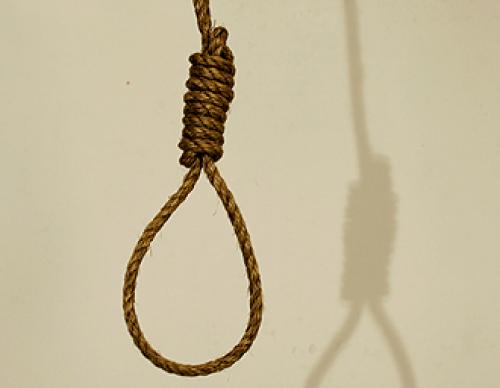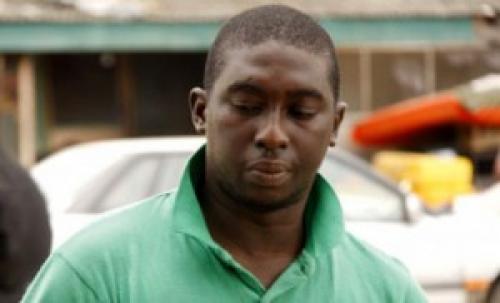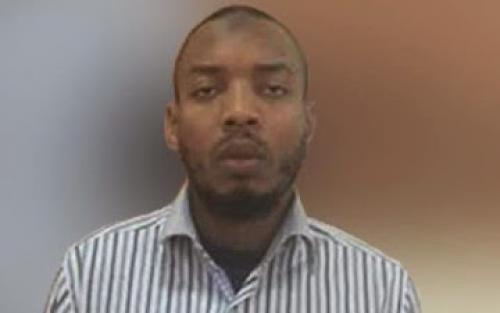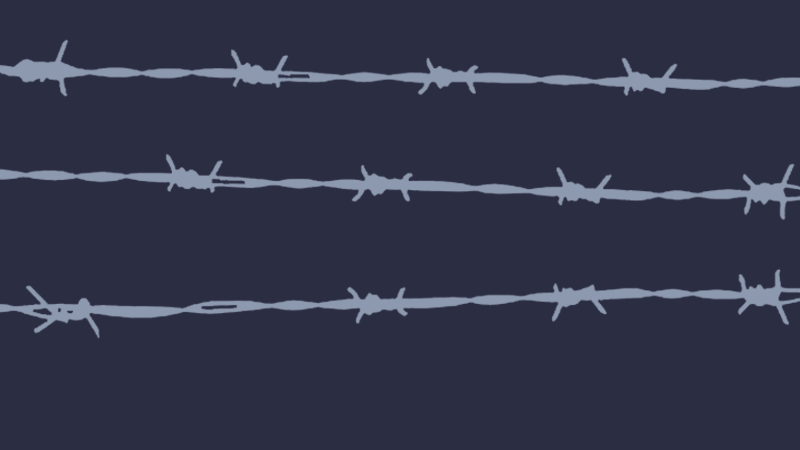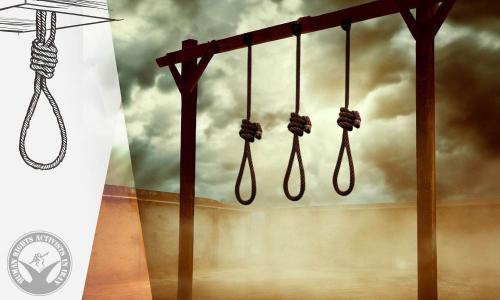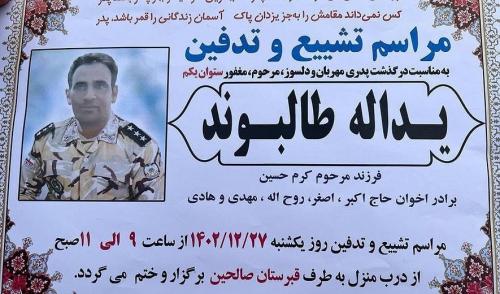government: federal republic
state of civil and political rights: Partly free
constitution: 1999 new constitution adopted
legal system: based on English common law, Islamic law (in 12 northern states) and tribal law
legislative system: bicameral National Assembly consists of the Senate and the House of Representatives
judicial system: Supreme Court (judges appointed by the Provisional Ruling Council), and Federal Court of Appeal (judges are appointed by the federal government on the advice of the Advisory Judicial Committee)
religion: Muslim 50%, Christian 40%, indigenous beliefs 10%
death row: 1588 (Nigerian Prisons Service, 31/10/2014)
year of last executions: 0-0-0
death sentences: 659
executions: 0
international treaties on human rights and the death penalty:International Covenant on Civil and Political Rights
Convention on the Rights of the Child
Convention Against Torture and Other Cruel, Inhuman or Degrading Treatment or Punishment
Statute of the International Criminal Court (which excludes the death penalty)
situation:
Death sentences are mandatory for murder but also non lethal offences such as armed robbery and treason. There
are other capital crimes such as offences against the State.
The presidency of Olusegun Obasanjo, whose democratic election in 1999 brought
to an end 15 years of military rule, led the country back into the
Commonwealth, from which it had been suspended in 1995 after the dictator Sani
Abacha ordered the execution of writer Ken Saro-Wiwa and other Ogoni activists.
In Nigeria, the federal legal system is based on English common law. However, since 1999, twelve
predominantly Muslim northern States have introduced Islamic Sharia law in criminal justice, a
decision which has prompted international criticism of the condemnation of
stoning for the crime of adultery of Safiya Hussaini and Amina Lawal and caused
tensions with the Christian minority resulting in armed conflicts causing
thousands of deaths. The federal government of Nigeria has repeatedly stated that the Federal Constitution does
not allow stoning and similar punishments called for by the Sharia.
To this end, former President Olusegun Obasanjo has spoken of "political Sharia" - an instrument in the hands of
state governments to impose conditions on the federal government - destined to
fizzle out with time, reassuring the international community that judicial appeals at the Federal level
guarantee that any improper verdict by the Islamic courts will be overturned.
On the basis of these appeals, the Nigerian Supreme Court could conclude that the sentence of death by stoning and the Sharia
itself are unconstitutional. To avoid this outcome, the Governors of 12 Northern States that introduced the Sharia
in 1999 and want to see it maintained, have assured that sentences of stoning
to death have been systematically overturned by local courts of appeal
operating under the Sharia.
Since 2000, in fact, there have been many Nigerian Muslims condemned to death by stoning for
“crimes” of a sexual nature, such as homosexuality and adultery, but none of
these sentences has been carried out, all being overturned on appeal and
commuted to prison sentences. The first and, up to now, only Sharia-based execution in Nigeria
since its introduction took place on 3 January 2002, when Sani Yakubu Rodi was
hanged in the State of Katsina for murder, after he was condemned to death by a
Sharia court.
In January 2000, President Olusegun Obasanjo pardoned death row inmates who had been awaiting execution for over 20
years and commuted to life terms the death sentences of inmates who had spent
between 10 and 20 years on death row. In October 2002, during a meeting with an
HOC delegation visiting Nigeria, he said: "As President I am committed to
saving lives and not eliminating them." He said he adhered to HOC's
worldwide campaign for a moratorium on executions and stated that he was
committed to it "here in our country and internationally."
On June 24, 2013 Nigeria resumed executions and hanged four people in the
prison of Benin City, in Edo State, in the country’s first executions since 2006. Chima Ejiofor, Daniel Nsofor,
Osarenmwinda Aigbuohian and Richard Igagu were executed after their death
warrants had been signed – two by Edo State Governor Comrade Adams Oshiomhole,
and the others by Governors of other States. The inmates were convicted of
crimes ranging from murder to rape and armed robbery.
Since the move from military rule to democracy in May 1999, at least 750 people
have been sentenced to death in Nigeria, according to Amnesty International.
During the same period, at least 26 people were executed.
In 2013, at least 141 death sentences were imposed, mostly for murder, but also for other crimes such
as armed robbery, according to Amnesty International. In 2012, 56 people were
sentenced to death, compared to at least 72 people in 2011 and at least 151 in 2010.
At the end 2013, according to Amnesty International, at least 20 juvenile offenders remained on
death row in Nigeria in violation of international and national law. In 2010,
the UN Committee on the Rights of the Child had expressed serious concern at
reports of an estimated 40 child offenders on Nigeria’s death row, although
this Country is not known to have executed a juvenile offender since 1997.
Their age at the time of their alleged crimes ranged from 13 to 17 years old. In the absence of a commutation
of their sentence, these persons are in effect serving sentences of life imprisonment
without possibility of release.
The federal Children’s Rights Act 2003 defines a child as under 18 and explicitly
prohibits capital punishment and corporal punishment, but only where these
provisions are confirmed in the state legislation derived from the Act.
However, the federal Act is in force only in the Federal Capital Territory of
Abuja and in states which have explicitly enacted it, a process in which it may
also be modified. States in the South which have yet to enact the Children’s
Rights Act may sentence child offenders from the age of 17 to capital
punishment.
In the North, 13 states have yet to enact the Act. In the 11 Sharia
states, Muslims may be sentenced to death for hadd (for which the prescribed punishment is mandatory) and Qisas (punished by retaliation) punishments
from the age of puberty, according to the Sharia law. Non-Muslims in the northern states which have not
enacted the Children’s Rights Act may be sentenced to death from the age of 17
at the time of the offence, under the Penal Code 1960 and the Criminal
Procedure Code 1960.
As of 21 December 2013, there were 1,034 inmates on death row in the country,
including 20 women, according to the Nigerian Prisons Service (NPS). The
Public Relations Officer of the NPS, Kayode Odeyemi, has absolved the NPS of
blame for the delay in the execution of inmates on death row. He said, “How can
we carry out executions without executive orders from the governors? We don’t
have the power to do that and since the governors are reluctant to sign the
death warrants, we have to keep the condemned inmates on death row
indefinitely.”
Two expert groups had been set up by the former President, Olusegun Obasanjo,
to reform the prison system and deal with the problem of prison overcrowding. The
groups, namely the National Study Group on Death Penalty and the Presidential Commission on Reform of the
Administration of Justice, were established respectively in 2004 and 2007, and
both recommended a moratorium on executions because the criminal justice system
could no longer guarantee a fair trial at all time.
On 29 May 2011, Ondo State Governor Olusegun Mimiko commuted the death
sentences passed on three people to life imprisonment to mark the Democracy
Day. Sunday John, Ayodele Ikuomenihan and Oluwatimilehin Ifaramoye, who were
condemned to death by hanging for murder, have been awaiting execution since
September 2006.
On 21 August 2011, Katsina State Governor Ibrahim Shema commuted the death
sentence passed on eight prisoners to life imprisonment in commemoration of
Ramadan. Musa Dauda, Shehu Idi Magaye, Nura Sabo, Samanu Salisu, Shittu Jubrin,
Aminu Sada, Abdulkarim Mohammed and Friday Patrick were selected due to good
behaviour, their length of stay in prison, and the fact that they had not killed
anyone.
On 26 January 2012, Ogun State Governor Ibikunle Amosun granted amnesty to
seven prisoners, including two death row inmates, Messrs Rasidi Yisau and
Saburi Adebayo, whose death sentence was commuted to life imprisonment. Amosun
advised the prisoners to keep on their record of good conduct as
they return to the society and described prisons as reformatory centres,
deploring the situation where people become hardened after a prison spell.
On 27 February 2012, Delta State Governor Emmanuel Uduaghan said he would not
sign death warrants. Dr. Uduaghan, who stated this at a town hall meeting in
Umeh Community, Isoko South Council Area of the State, said as a medical doctor
he was trained to save lives and not to take them.
On 27 March 2012, at a conference organised by Lawyers Without Borders in Abuja, the
Chief Justice of Nigeria, Justice Dahiru Musdapher, and Attorney General of the
Federation, Mohammed Bello Adoke, have taken different positions. While the Chief Justice disagreed
on the abolition of death penalty, saying it must be retained in the
constitution in spite of mounting pressure against it, the Attorney General was
undecided, saying he could not say whether “it is right or wrong.” Justice
Dahiru Musdapher stressed that in a constitutional democracy, neither the
legislature nor the judiciary is supreme over the constitution, adding that
unless the National Assembly amends the law, there is nothing anybody can do
about it. ‘The constitution specifically provides for death penalty… In addition,
the Supreme Court has, in a plethora of cases, upheld the constitutionality of
death sentence in Nigeria,” Musdapher said. In his remarks, the Attorney
General of the Federation and Minister of Justice, Mohammed Bello Adoke, said
he could not take a position on whether death penalty should be abolished or
not, a position supported by the National Human Rights Commission (NHRC). The
Attorney General emphasised that death penalty is a constitutional matter,
decrying that the judiciary has been reluctant in its application.
On 25 September 2012, a Lagos High Court Judge, Justice Mufutau Olokoba, has nullified the death sentence passed on five
persons. This declaration followed an originating summons filed by Norrison
Quakers (SAN) in 2008, against the Attorney-General of Lagos State on behalf of
the five condemned persons, who were convicted at various occasions and for
various offences between 1984 and 1995. They were to die by hanging or firing
squad. The judge, who described the mode of execution of the said punishment as
an infraction on the right to human dignity of the condemned persons, granted a
perpetual injunction restraining the respondents (Lagos State Government) from
executing the condemned persons by hanging or firing squad. Addressing the
constitutionality of the methods of execution provided by the Criminal
Procedure Law and the Robbery and Firearms Act, Olokoba said it was a violation
of the right to human dignity of a person as provided by Section 34(1) of the
1999 Constitution. “Death by hanging or by firing squad amounts to a violation
of the condemned’s right to dignity of the human person and inhuman and
degrading treatment. It is consequently unconstitutional…” Olokoba said.
Reacting to the judgment by the court, Quakers said it has revolutionized the
administration of criminal justice as it is a departure from conservatism. He
noted that until the judgment is reversed or set aside by an appellate court,
it remains binding and any court that pronounces death by hanging or firing
squad can be challenged based on the judgment by Olokoba.
On 18 October 2012, Edo State Governor, Comrade Adams Oshiomhole granted
amnesty to two prisoners condemned to death: 32-year-old Monday Odu, who was a
minor when he was convicted in 1997 for murder, and 52-year-old Calistus Eke,
who was sentenced for armed robbery in 1996. The Governor also commuted to life
imprisonment the death sentence of two others: Tijani Mustapha and Zubem
Abduramma, who were both convicted for conspiracy and armed robbery. Speaking
after granting amnesty to Odu and Eke, Oshiomhole said: “We have exercised the
prerogative of mercy to release you from prison believing you have learnt your
lesson. You can still be useful to society and useful to yourselves.” Odu and
Eke were promised respectively N100,000 and N200,000 (about 600 and 1,200 USD)
by the government to start their life over. “I hope you will be able to make
something positive out of this your present condition,” the Governor said. On
22 October, Governor Adams Oshiomhole announced that, on 26 September, he had
commuted to life imprisonment the death sentence against another inmate, Olu
Fatogun, convicted of armed robbery. He said: "The case of Olu Fatogun was
reviewed by the Advisory Council on the Prerogative of Mercy and they
recommended that his death sentence be affirmed and carried out, but I refused
the prayers. Instead, I ordered that the death sentence be commuted to life
imprisonment.” Oshiomhole, however, noted that there are two other persons whose
conviction he approved – Daniel Nsofor and Osayinwinde Agbomien. He explained
that Agbomien killed his victim, dismembered his body and buried the parts in
different places to avoid detection, adding that when the convict was taken to
court, he said his offence was a mistake but the manner in which he treated the
body indicated that it was gruesome, premeditated and a wicked act. On Nsofor,
Oshiomhole said he approved his death sentence because after robbing his
victim, a woman, of her possessions, he subjected her to horrendous torture and
experience and thereafter killed her.
On 13 December 2012, the National Assembly approved an amendment to the
Terrorism (Prevention) Act 2011, confirming the death penalty for acts of
terrorism. The Terrorism (Prevention) Act 2011 (Amendment) Bill, 2012, was
passed by the House of Representatives on 11 October and by the Senate on 17
October. The Senate version prescribed life imprisonment for offences under
this clause while the House version prescribed death penalty. The National
Assembly decided to adopt the House version following the recommendations of a
Conference Committee's report of both houses, which harmonized the different
versions of the Amendment Bill.
The Terrorism (Prevention) Act, 2011 establishes measures for the prevention, prohibition and combating of acts of terrorism and
the financing of terrorism in the Country. It also provides for the effective
implementation of the Convention on the Prevention and Combating of Terrorism
as well as the Convention on the Suppression of the Financing of Terrorism, and
prescribes penalties for the violation of its provisions. The principal Act
defines “act of terrorism” any act that involves or causes an attack upon a person’s life which may
cause serious bodily harm or death; kidnapping of a person; destruction of a
government or public facility, transport system, an infrastructural facility
including an information system, a fixed platform located on the continental
shelf, public place or private property likely to endanger human life or result
in major economic loss.
On 7 November 2012, Delta State House of Assembly passed a bill stipulating
death sentence for kidnappers and terrorists. The bill, known as “Law to
Prohibit Terrorism, Kidnapping, Hostage-taking, Cultism, Use of Bombs and
Explosives and Other Matters thereto”, was unanimously passed by the 28 members
of the House. Under the new bill, a traditional ruler in the state in whose
domain hostages are held to his knowledge will be deposed or his kingship
withdrawn. Also, a telecommunications company, which refuses to make available
to security agencies, within 24 hours of request, information on the
communication made by a suspected kidnapper or terrorist, will pay a fine of 20
million of Nigerian Naira (127,469 USD) for every request not granted. The
Clerk of the House dispatched the bill to the Governor, Emmanuel Eweta
Uduaghan, for assent. Uduaghan declined to sign the bill into law when the
House passed a similar bill between 2010 and 2011 on the grounds that death
sentence has never staved off the perpetuation of capital crimes since it was
introduced in the statute books. “My stand on this has always been the same;
the death sentence has not stopped any criminal activities,” Emmanuel Uduaghan told
This Day Live on 29 November 2012. However, 26 of the 29 House’s members voted to override the Governor’s
veto which effectively makes the bill now an authentic law of the State. “It is
my view that death sentence punishment is not likely to serve as deterrent or
antidote,” Governor Uduaghan wrote in a very lengthy letter sent to the House
and read out prior to the voting. Under the new bill, a traditional ruler in
the State in whose domain hostages are held to his knowledge will be deposed or
his kingship withdrawn.
On 17 June 2013, President Goodluck Jonathan had called on State Governors
not to shy away from signing death sentences passed on convicted criminals. In
a message at the Villa Chapel to commemorate the Fathers’ day celebration,
President Jonathan said, “Even Governors sometimes find it difficult to sign. I
have been telling the Governors that they must sign because that is the law.
The work we are doing have a very sweet part and a very ugly part and we must
perform both. No matter how painful it is, it is part of their responsibilities.”
On 28 June 2013, Foreign Affairs Minister Olugbenga Ashiru said Nigeria
will not alter its position on the death penalty, because of the criticism of
some human right groups and some western nations. Ashiru said it is ironic that
Nigeria’s criminal code being condemned today “was handed down to us by the
colonial powers at the time.”
On 29 June 2013, however, Justice Sylvester Ngwuta of the Supreme Court
of Nigeria said that capital punishment should be expunged from the country’s
Constitution. The top Judge, in an interview with Leadership Weekend, said that since Governors were reluctant to
sign death warrants for capital punishment, “it has become obvious that it is
not relevant to have a place in our laws.” He continued, “Apart from the
Governor of Edo State, the State chief executives are afraid to sign execution
warrants.” Besides, Justice Ngwuta said he was not sure that capital punishment
“really solves any problem” adding that two wrongs do not make a right. “Some
of the crimes really stink to high heavens but then that doesn’t make it a
situation. You kill ten today, ten commit the same offence tomorrow.”
On 3 July 2013, the African Commission on Human and Peoples’ Rights requested President Goodluck
Jonathan to rescind his directive to the 36 States of the Federation of Nigeria
asking them to begin execution of prisoners on death row across the country.
The Commission’s Provisional Order followed a petition filed by the Socio-Economic Rights and Accountability
Project (SERAP).
On 10 July 2013, the Lagos State Government joined calls for a rethink
of death penalty in Nigeria’s Constitution, urging rather the setting up of an
investigative committee on death sentence to determine whether or not it has
served as appropriate deterrent to criminals. The Attorney-General and
Commissioner for Justice, Ade Ipaye, disclosed the state’s position at the
monthly ministerial briefing in Alausa, Ikeja, stating that the committee
should also consider whether there was an increase or otherwise in cases of
armed robbery incidents between the lag period in the execution of convicts on
death row. According to him, the result of the investigation will help
Nigerians take a stance on the issue.
On 17 October 2013, Governor Comrade Adams Oshiomhole of Edo State
signed into law the “Kidnapping Prohibition Law 2009” as amended by the House
of Assembly. The law prescribes the death penalty for anyone who is involved in
any form of kidnapping in the State. While appending his signature to the Bill
in Benin City, Oshiomhole said, “That as reluctant as one would want to be in
matters of life and death, I am convinced that the overriding public interest
now dictates that we invoke the maximum penalty available in our law to all those
involved in the act of kidnapping. Anyone sentenced and convicted; I will sign
the death warrant.”
After being elected at the Human Rights Council in 2006, Nigeria presented itself at the 4th Session of the
United Nations Universal Periodic Review (UPR) on 9 February 2009. While
Nigeria did not adopt an official moratorium on executions, the Federal
Minister of Foreign Affairs, Ojo Uma Maduekwe, stated that Nigeria has a “self
imposed moratorium.”
On 22 October 2013, Nigeria was reviewed under the Universal Periodic Review of the UN Human Rights
Council. On 20 March 2014, in its oral response to the recommendations received,
the Government rejected all the recommendations dealing with the abolition of
the death penalty, including recommendation to commute all death penalties,
progressively reduce the number of crimes that can be punished with the death
penalty and eventually adopt measures for the complete abolition of the death
penalty including accession to the Second Optional Protocol to the
International Covenant on Civil and Political Rights. “Much as we acknowledge
the desirability of a moratorium on the death penalty, it is not feasible to
implement at this time under a Federal System that guarantees a measure of
autonomy to its federating units,” explained the country’s delegation. “Such
moratorium could not be sustained without going through a constitutional
amendment which not only takes time, but could also be quite cumbersome.”
However, the Government assured the Human Rights Council that Nigeria “shall
respect” the ECOWAS Court of Justice order restraining the Nigerian Government
from carrying out executions of condemned persons, “even as we continue with a
national dialogue on the abolition of the death penalty.”
On 18 December 2014, Nigeria abstained from the Resolution on a Moratorium on the Use of the Death Penalty
at the UN General Assembly, such as in 2012 and 2010; previously, in 2007 and 2008, it had voted against such
resolution.


